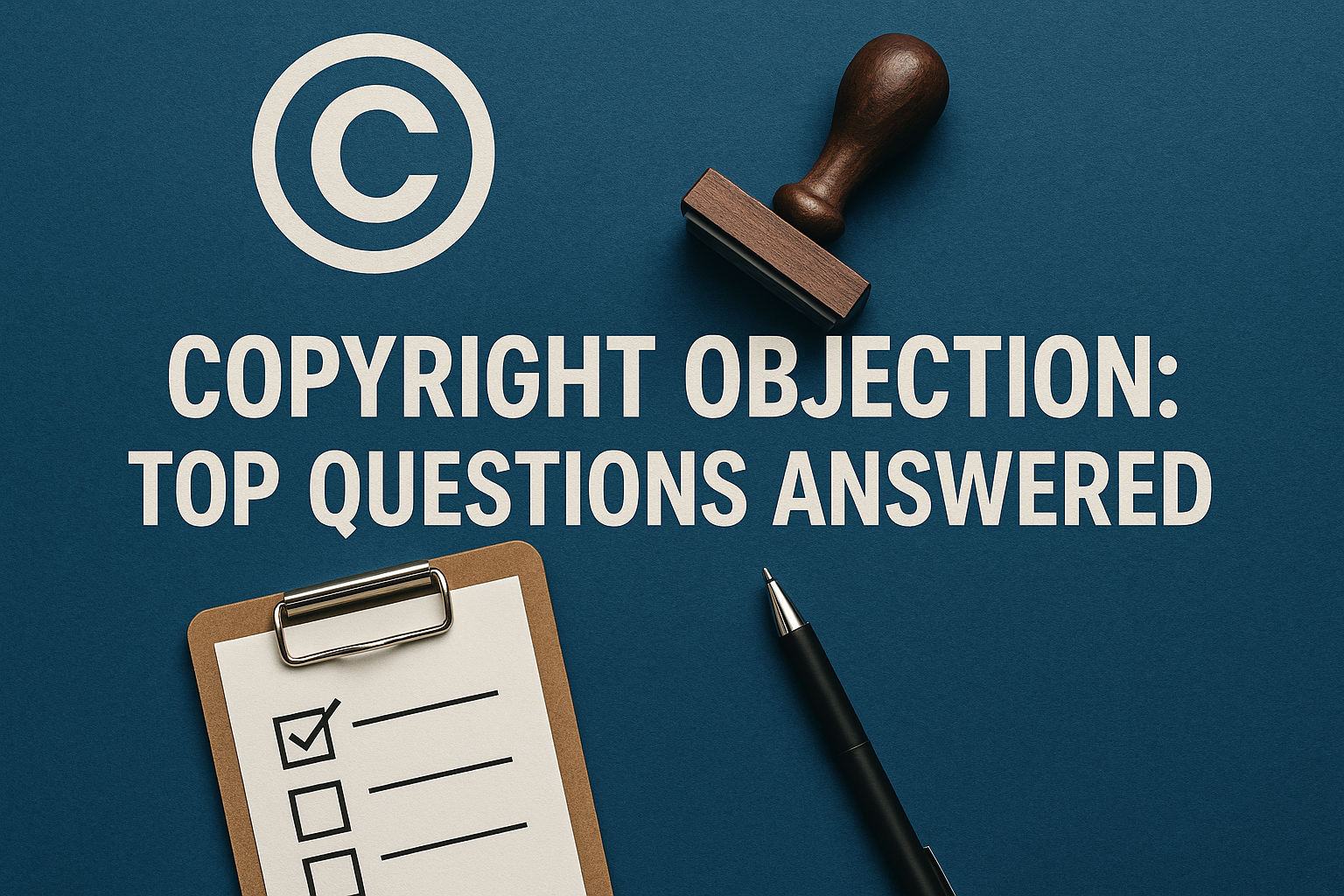Copyright Objection: Top Questions Answered (2025 Humane Guide)
The world of copyright can feel confusing, especially when objections, notices, and reply windows start flying around. Don’t worry—if you’re a creator, startup founder, or entrepreneur in India, this humane blog answers the most common questions about copyright objections—so you can protect your original work and business with confidence.
1. What is a Copyright Objection?
A copyright objection is a formal challenge raised by a third party (or sometimes by the Registrar) against a pending copyright registration. It questions the originality, rightful ownership, or eligibility of the work, pausing registration until the issue is resolved.
2. Who Can File a Copyright Objection?
-
Original creators who believe the pending work infringes their own.
-
Current rights-holders—licensees, assignees, heirs with legitimate prior claims.
-
Businesses or brands if logos, content, or trade assets are copied.
-
Anyone with genuine rights or prior use—provided they have proof.
3. When Can I File a Copyright Objection?
You must file within 30 days of the copyright application entering the public notice period (after a Diary Number is issued at copyright.gov.in).
Late objections are usually not accepted, so act quickly!
4. How Do I File a Copyright Objection?
-
Draft a concise objection—explain why the application conflicts with your rights, and cite evidence (registrations, dated drafts, proof of prior use).
-
Submit online at the official copyright portal within the 30-day window.
-
Upload supporting documents (PDF/JPEG, under portal size limits), and keep copies of everything you send.
5. What Evidence Do I Need?
-
Dated drafts, original files, or registration certificates
-
Emails, contracts, publishing records
-
Any documents proving you created or owned the work before the applicant
6. What Happens After I File an Objection?
-
The Registrar notifies the applicant.
-
The applicant has 30 days to respond with their evidence and reply.
-
The Registrar reviews both sides, may schedule a virtual hearing if needed, and then issues a decision.
7. What If I Miss the Objection Window?
You lose the right to object in the registration process. Future disputes would need to go through costly and time-consuming civil litigation.
Be vigilant and act within the official 30-day period.
8. Can I File an Objection if My Own Work Isn’t Registered Yet?
Yes, as long as you can prove prior creation, authorship, or use—even without official registration. Always include dated evidence in your objection.
9. What Are the Common Mistakes in Filing an Objection?
-
Missing the 30-day response window
-
Submitting weak or incomplete evidence
-
Vague or emotional statements (vs. clear, fact-based arguments)
-
Not following the portal instructions for digital format and file size
-
Not responding promptly if the Registrar asks for more info or schedules a hearing
10. Can I Resolve an Objection Without Formal Dispute?
Absolutely! Sometimes, direct negotiation leads to amicable settlements—withdrawals, licensing agreements, or attribution. This is often faster and preserves relationships, but make sure everything is documented.
BONUS: What If I Receive an Objection to My Pending Application?
-
Don’t panic—review the objection carefully.
-
Gather all your evidence proving originality and rights.
-
File a clear, timely reply within 30 days through the portal, addressing each objection point directly.
-
Consider professional help for strong drafting, especially in close or high-stakes cases.
Humane Takeaway
Copyright objections aren’t red tape—they’re protection for what makes your work unique and valuable. Whether you’re raising one or defending against it, clear evidence, quick action, and calm professionalism are your best allies.
Visit - https://www.filingworld.in/
#filingworld
